The Traditional American Right to Eat Good Meat
By Stanley A. Fishman, author of Tender Grassfed Meat and Tender Grassfed Barbecue
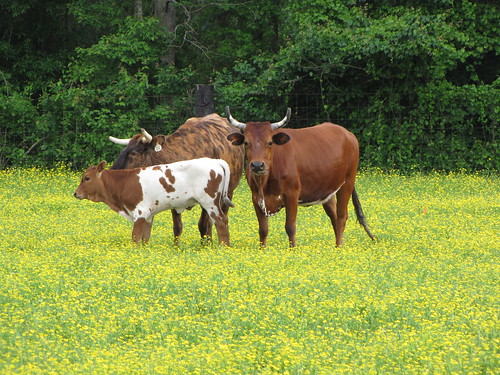
 photo credit: Gerry Dincher
photo credit: Gerry Dincher
We live in a time when the eating of all meat, any meat, is under attack. We are constantly told we must eat less meat, especially less red meat, or should eat no meat at all. We are given many reasons, which are false when it comes to grassfed meat. The attacks on meat never distinguish between the pure, grassfed meat of eaten by our ancestors, and the very different factory meat that eaten by most people.
Yet restrictions on eating meat are not new, and go back thousands of years. In most human societies after the advent of agriculture, meat eating and hunting were heavily restricted. Only the ruling classes and some of their servants were able to get enough. Before the founding of the United States of America, this was still true for most of the world, including Europe.
While most people think of well known American freedoms like freedom of speech and freedom of religion, most never think of a freedom that is just as traditional and possibly even more important—the right to eat enough good meat.
The Old Restrictions on Meat, and the American Difference
In Europe, most people ate very little meat. The policies of the governments prohibited most people from hunting, as all game was considered to belong to the crown or the nobility. People who killed a rabbit to feed their hungry family were guilty of the crime of “poaching,” and were often executed for that “crime.” While peasants and farmers would often raise animals, they would keep them mainly for milk. The surplus animals would usually be sold so the peasants could pay the high rents and taxes to the nobles and other landowners. In fact, in Ireland, the pigs raised by families were known as “the gentleman who pays the rent.”
The result was that most Europeans had to survive on a diet consisting mainly of grains, vegetables, seasonal fruits, with some dairy products and some fish. The result was a population so stunted and malnourished that a man of 5 feet 4 inches was considered tall, even into the nineteenth century.
Some of these people immigrated to the British, French, and Spanish colonies in North and South America. There were very few nobles and rich people there, especially in the British colonies. But there was a huge supply of wild game, and no one to restrict hunting. The early settlers learned a lot about hunting from the Native Americans, who were expert hunters, and much taller, stronger, and healthier than the first European immigrants. Anyone who wanted to hunt could, and meat immediately became a huge part of the colonial diet. In addition to wild game, pigs and cattle were imported, and quickly thrived on the almost unlimited grazing of the new lands, multiplying in huge numbers. Keeping animals for meat was cheap and easy, and these immigrants were able to eat their fill of good, grassfed and pastured meat for the first time.
The Benefits of Good Meat.
The research of Dr. Weston A. Price established the fact that people need animal foods, especially animal fats, to thrive and be healthy, and grassfed and pastured meat are perfect animal foods. The benefit of these foods was shown by the history of the United States.
The population of the English colonies in North America exploded, as people thrived on the meat-heavy diet. A number of people immigrated to these colonies just because they heard that even poor people could afford meat there. In fact, the diaries of immigrants, even in the early twentieth century, reveal that one of the most important motivations for moving to the Americas was the ability to afford and get good meat.
Not only did people live longer, but they were taller, stronger, healthier, and more independent. British visitors to the thirteen colonies were astonished at the height, strength, and health of the Americans, who often towered a foot or more above their English relatives. The genetics were the same, the difference was in the diet, and the Americans ate huge amounts of good, natural meat. A diet that only the wealthy and privileged could enjoy in England.
Good meat and fat nourish the brain, and these tall, strong people were very independent minded, would not just do what they were told, and took pride in thinking for themselves and making their own decisions. “Yankee ingenuity” became a byword in Europe. Eventually, these well nourished people founded the United States of America, defeated the greatest military power on earth in a bloody, yet completely successful revolution, and founded one of the best systems of government the world had yet seen. A system that had many flaws, yet allowed more freedom and personal responsibility than any system existing in Europe at the time.
These ideas were exported to Europe, and eventually resulted in the freeing of most Europeans, giving them a degree of freedom that they never had before.
The right to eat good meat has been a basic American freedom, and it is a right that everyone on earth deserves to have.
Switching to grassfed meat, using the grazing practices pioneered by Allan Savory, would greatly increase the supply of good meat and increase the amount of grasslands and water throughout the world.
This post is part of Fat Tuesday and Real Food Wednesday blog carnivals.
Sorry, the comment form is closed at this time.
Read more
« Study Does Not Prove that Grassfed Red Meat Increases Diabetes Risk
The Butchers Tale, or Is Real Food Worth It? »
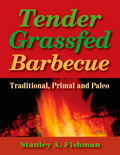
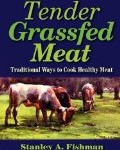
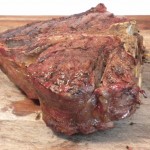 Photos of recipes from the new book Tender Grassfed Barbecue
Photos of recipes from the new book Tender Grassfed Barbecue
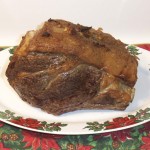 Photos of recipes from the cookbook Tender Grassfed Meat
Photos of recipes from the cookbook Tender Grassfed Meat